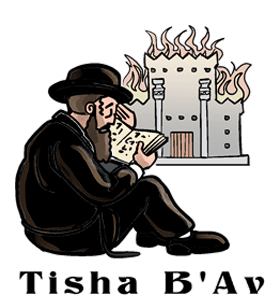Tisha B'Av
Tisha B'Av Quick Facts - IL
| AKA Name | Fast of the ninth of Av |
|---|---|
| HashtagsCompiled on | #TishaBAv |
| 2024 Date | 12 August 2024 |
| 2025 Date | 3 August 2025 |
2024 Holidays & Dates - US
| Israel & Common Holidays | ||
| Misc. & Int'l. Observances |
|
|
›
|
|
